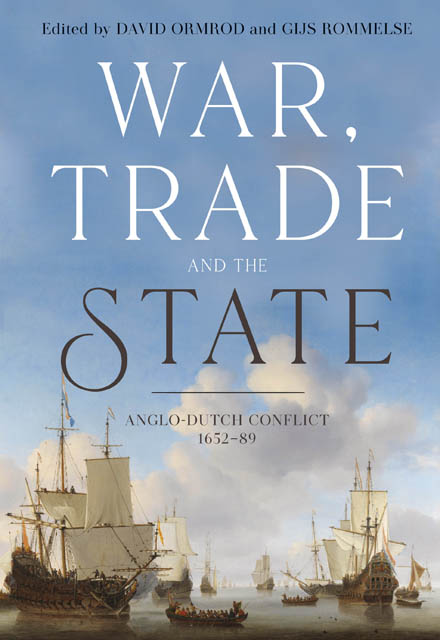2 - The seventeenth-century Anglo-Dutch Wars in a European context
Published online by Cambridge University Press: 18 January 2023
Summary
War in the early modern period was endemic; in the entire seventeenth century there were only three years without conflicts between European states. Though some were large-scale conflicts involving several countries, the overwhelming majority were regional, bilateral or internal affairs. These were reported in diplomatic correspondence and in the news media of the period but, as strategic interests of others were little affected, did not receive wide interest. Exceptional in this context were the three primarily sea wars fought between England and the Dutch Republic in the mid-seventeenth century. For a number of reasons, these conflicts were followed with the keenest interest over a wide area. Nevertheless, historians have traditionally tended to take a bilateral viewpoint in their treatment of these wars. This approach overlooks the fact that hostilities between two of the most important economic and maritime powers in Europe could not but have far-reaching consequences, not only for the belligerents’ neighbours and close allies, like France, Denmark, Munster and Cologne, but also for the European continent as a whole.
In this contribution the Anglo-Dutch Wars are considered from a Europe-wide perspective. From the beginning of the early modern period the nations of Europe increasingly formed a recognizable economic, political and diplomatic system. One of the most significant drivers for its formation was the steady expansion, throughout the late Middle Ages and the early modern period, of water-borne commerce. The intensity and volume, and the diversity of the traded merchandise grew spectacularly, while markets and production areas became closely connected in complex distribution networks. These developments in turn required services such as the provision of credit, insurance and trading in securities. City authorities were pleased to encourage these and also to authorize facilities for the minting of specie. National governments also saw the necessity of reacting to these economic developments by regulating and protecting shipping and commerce, at the same time introducing new taxes that were designed to tap into the growing monetary economy. Ambitious merchants established international companies with offices, agents and partners in various European countries. To enable them to anticipate fluctuations in supply and demand, they employed correspondents to provide regular news updates. The Anglo-Dutch Wars, fought primarily in the English Channel and in the North Sea, practically severed the maritime connection between the northern European and the Mediterranean markets. Moreover, they involved two of the most prominent carrier nations.
- Type
- Chapter
- Information
- War, Trade and the StateAnglo-Dutch Conflict, 1652-89, pp. 37 - 57Publisher: Boydell & BrewerPrint publication year: 2020

